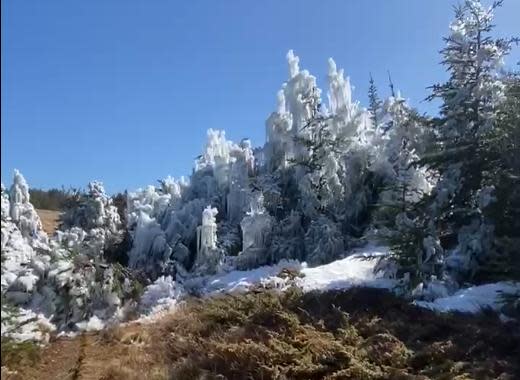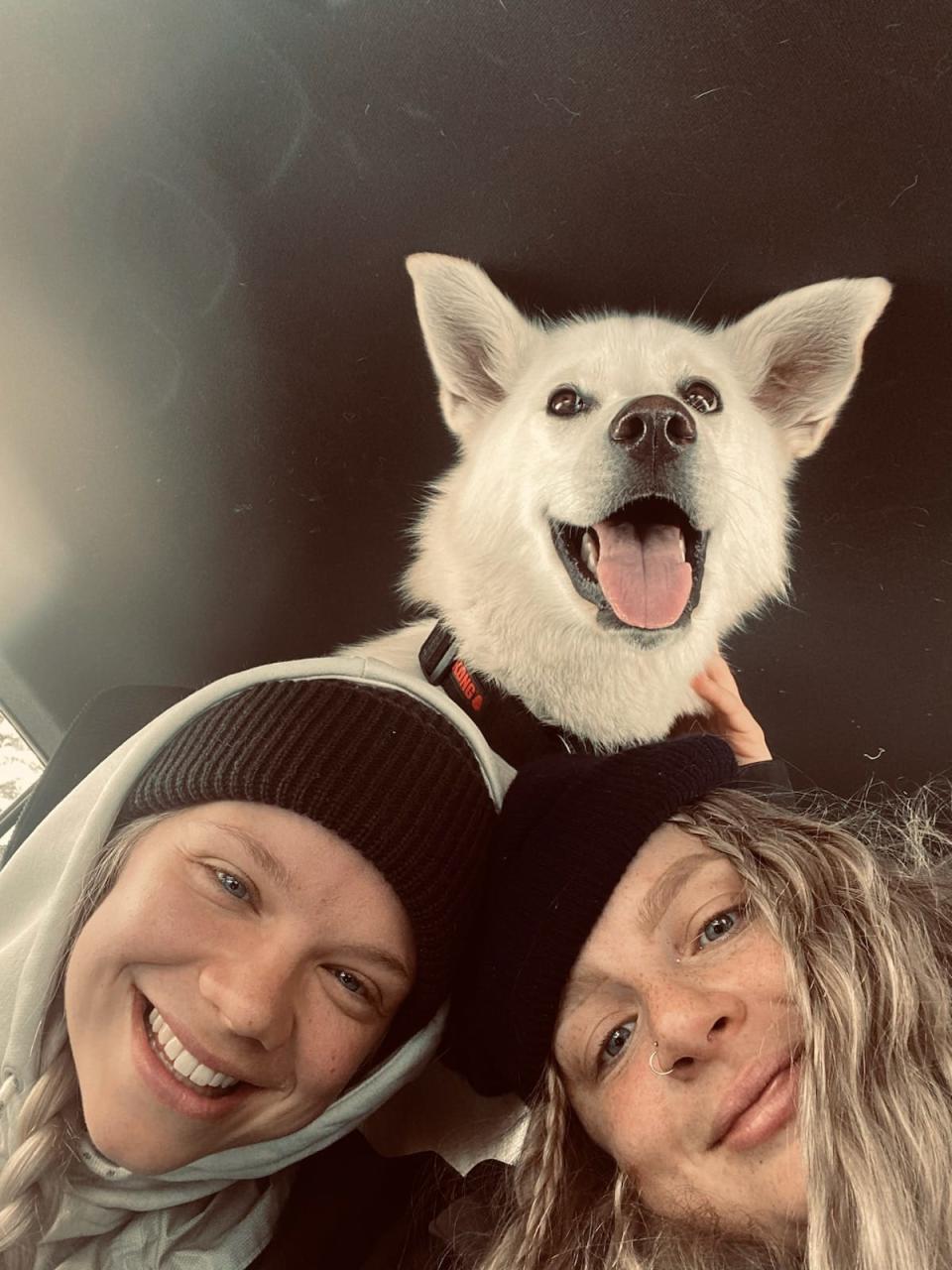Can't see the forest for the freeze: Hikers stumble on trees frozen by 'hyper-localized icing'


Em Oates, her friend and her dog were out hiking when they stumbled across an isolated section of frozen trees and bushes. (Submitted by Em Oates)
Two women hiking near Flatrock, N.L., recently were stunned when they came across a section of trail with an "ice forest": trees glazed in layers of ice surrounded by unfrozen trees.
On a trail nestled between trees in the Avalon Peninsula town about 25 kilometres from St. John's, Em Oates, her friend and her dog were out for a hike April 12 when they came across a section of trail that Oates said looked like "the aftermath of some sci-fi battle."
"We were just walking and we saw it up ahead and we were like, 'what is that?' she said. "It was so bizarre that we kind of got a little bit weirded out."

Oates, right, and Heather Goosney — with Oates's dog Moon — were stunned by the 'ice forest.' (Submitted by Em Oates)
She posted images of the "ice forest' on social media, hoping someone would be able to explain it. Somebody suggested it was sea spray, she said, but when they went back to the trees and snapped off an icicle, they discovered it was fresh water.
Climatologist and professor at Memorial University, Joel Finnis said the ice forest is a great example of what he called "extreme localized icing."
"I would guess it's probably freezing fog," he said.
"You have some droplets of water in the atmosphere that have cooled down below freezing, but they're not quite able to freeze yet. They have to wait for something to give them some structure that they can freeze onto."
WATCH | A magical icy forest explained:
Once the water droplets find a surface, they immediately freeze. Layer after layer of ice builds up over time, coating the surface further. Finnis says low temperatures and high humidity are what make it possible.
Finnis said Newfoundland's conditions are perfect for the phenomenon to occur regularly. In fact, he added, researchers from the National Center for Atmospheric Research in the United States have come to conduct freezing rain studies.
"It's super-interesting," he said. "I'll definitely be talking about this as an example of hyper-localized icing in classes in the future."
Download our free CBC News app to sign up for push alerts for CBC Newfoundland and Labrador. Click here to visit our landing page.


